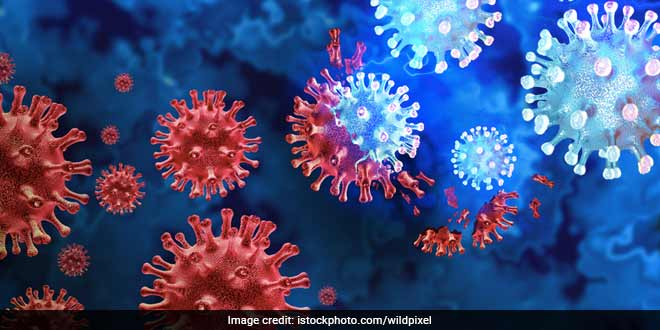
Healthcare experts like Best Internal Medicine specialist in Lahore have been seeing cases of coronavirus for the last two years. The illness transmitted by this virus, starts with a respiratory infection, and later on cause a cytokine storm that causes organ shutdown. Since the COVID-19 pandemic, many strains of this virus have been identified.
Read on to know more about coronavirus, and its new strain.
What is coronavirus?
Covid-19 is the disease transmitted by coronavirus, which is a family of viruses transmitting respiratory tract infection. Most of these infections are not dangerous; however, in the December of 2019, a new type of coronavirus was identified and named SARS-CoV-2 or COVID-19, which was highly contagious. Globally, over 200 million cases have been identified, with more than 4.5 million deaths.
What are the symptoms of covid-19?
This strain causes infection of the upper respiratory tract—throat, nose and sinuses—and eventually spreads to the lower respiratory tract, to cause illness ranging from mild to severe. In some people, covid-19 causes severe illness and is rapidly fatal, while in other, it only has mild flu-like symptoms.
Common symptoms linked to covid-19 include:
- Shortness of breath
- Fever and chills
- Fatigue
- Cough
- Nose congestion
Less commonly, there is:
- Sore throat
- Headache
- Shivering
- Loss of taste and smell
- Gastrointestinal symptoms
- Rash
- Pink eye
In severe form of disease, there is:
- Difficulty breathing
- Cyanosis with blueness of lips and nails
- Persistent pressure or pain in the chest
- Excessive drowsiness
- Confusion
Who is at risk of severe covid-19?
The risk of severe illness is higher in individuals such as:
- People with chronic conditions like cancer who are receiving chemotherapy
- Patients with cardiovascular disorders like heart failure, coronary artery disease, and cardiomyopathies
- Patients with blood disorders like hemophilia and sickle cell disease
- Obese patients with body mass index of 30 and higher.
- People with weakened immune system, such as those on immunosuppressants after organ transplant
- People with uncontrolled diabetes, particularly type 2 diabetes
- Patient of chronic kidney disease (CKD)
- Pregnant women
What are the treatment options for covid-19?
Presently, there is no cure for covid-19. Most cases of the disease are managed symptomatically, but many drugs are under study. The treatment regimen followed includes: oxygen therapy, antivirals, intravenous steroids, antibiotics for superadded bacterial infections, monoclonal antibodies, antiplatelet drugs, interleukin-6 inhibitor and in some cases convalescent plasma.
Is omicron any different than other strains of COVID-19?
According to the World Health Organization (WHO), the variant of omicron is spreading much faster than any previous strain. In fact, this variant is probably already present in most countries of the world, even if it is not detected yet.
Even though it is clearly more contagious, whether or not this variant is more dangerous than the previous strains, remains to be seen. What worries the policy makers is that despite mild symptoms and less severe disease, this variant has the potential to overpower the healthcare system and overwhelm the unprepared hospitals.
Experts recommend that it is time to return to social distancing and wearing masks, as vaccination alone is not enough to deal with omicron. According to preliminary research, the protection provided by AstraZeneca’s, Pfizer’s and BioNTech’s vaccine is not enough against this variant. However, it is likely that the severity of illness is attenuated with the vaccine.
The idea behind social distancing, and wearing masks again, is to ensure that the healthcare system, around the world, is not overwhelmed. The WHO is urging governments around the world to strengthen their health system, staffing their hospitals and putting supplies against omicron in place. In addition, the governments are urged to vaccinate their citizens. Worrisome data indicates that 41 countries have not even reached 10 percent vaccination of their citizens, while 98 countries have not reached 40 percent vaccination.
For more information about covid-19 and omicron variant, get help from a professional, available for booking at oladoc.com.






